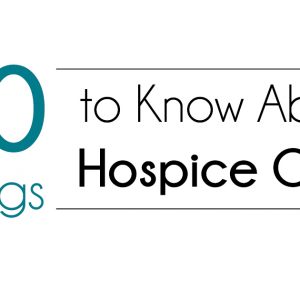by Arlene Correia, CNA
One of the many services offered to Hospice of the Red River Valley patients is regularly scheduled visits by our certified nursing assistant (CNA) staff. Four years ago when I joined the CNA staff at Hospice of the Red River Valley, one of my mentors, Jerry, who is a long-time CNA and Hospice employee, said that...
Hospice care is a set of specialty services designed specifically for individuals with late-stage illnesses and their loved ones, and includes medical, emotional, spiritual and grief support. Despite its many advantages, for both patients and their families, hospice is often misunderstood.
Sometimes, hospice care is never offered and other times an individual or family is reluctant to accept hospice care....
This month Hospice of the Red River Valley celebrates National Hospice Month. And this year, we have extra reason to celebrate.
Recently, Medicare announced it will reimburse doctors for end-of-life conversations with patients. As the area’s leading expert in end-of-life care and education, we have long believed these conversations should be happening earlier, at the time of diagnosis, not when...
by Heather Larson, LSW
As a Hospice employee and a mother who utilized hospice care for her son, the concept that hospice doesn’t mean giving up, but rather a shift in priorities, is second nature to me. However, I know for many people, the same notion doesn’t come as easily, but the reality is we all came into this world,...
by Roxanne Smedsrud
I have been working in hospice care for more than 20 years, and when I hear the word pain, I can’t help but think no one should have to hurt at the end of life. This is especially true when I think of people living with dementia. Dementia is disease type that causes impairments in language, memory,...
A common misconception of hospice care is people on hospice are lying in a bed, waiting to die. Even 40 years after the hospice movement began in the United States, many still equate hospice with “giving up.” Hospice care serves as a valid health care option for end-of-life. By learning more about the true benefits of hospice, families can make...
By Jenny Gold, Kaiser Health News Staff Writer
It is time for conversations about death to become a part of life.
That is one of the themes of a 500-page report, titled "Dying In America," released by the Institute of Medicine.
The report suggests that the first end-of-life conversation could coincide with a cherished American milestone: getting a driver's license at 16,...
By Roxanne Smedsrud, RN, CHPN
It’s a Common Situation
One afternoon I was visiting with my friend, Valerie, and she began telling me about her grandpa, George, who was recently diagnosed with colon cancer at age 94. He lived in a nursing home in Fargo, but the last year found him in and out of the hospital on several occasions. Valerie...
Defining the Difference
The distinction between palliative care and hospice care can be confusing when deciding the next best course of action when you or a loved one is faced with a serious illness. Although both care plans have similar comprehensive, multidisciplinary team approaches—focusing on holistic care for the entire person—including medical, emotional and spiritual needs, they have key differentiating...
Congress established the Medicare Hospice Benefit in 1983 to ensure that all Medicare beneficiaries could access high-quality end-of-life care. The Medicare Hospice Benefit offers dying Americans the option to experience death free of pain, with emotional and spiritual support for both themselves and their families.
Care that patients receive under the Medicare Hospice Benefit for their terminal illness must be from...



